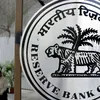Coronavirus: RBI announces several relief measures to tackle Covid-19 challenges
Reserve Bank of India Governor Shaktikanta Das on Friday said the central bank will use all instruments to deal with the challenges posed by the outbreak of the coronavirus.
Reserve Bank of India Governor Shaktikanta Das on Friday said the central bank will use all instruments at its disposal to deal with the challenges posed by the outbreak of the coronavirus, and announced several measures to take the pressure off the economy.
Looking to assuage concerns of a tanking economy, Das said India is expected to post a sharp turnaround in 2021-22 itself, adding that the central bank will come up with more responses in the future in the interest of the economy, based on the evolving situation.

Banks exempted from paying dividends
Providing relaxation to lenders, the RBI said the country's banks will be exempted from making dividend payments in order to ensure adequate liquidity in the system.
It also slashed the reverse repo rate - the rate at which banks park their fund with the central bank - by 25 basis points to 3.75 percent, to encourage banks to lend to the productive sectors of the economy.
With regard to other measures, Das said RBI will begin with giving an additional Rs 50,000 crore through targeted long-term repo operation (TLTRO), to be undertaken in tranches, and announced a refinancing window of Rs 50,000 crore for financial institutions like Nabard, National Housing Bank and Sidbi.
The liquidity coverage ratio (LCR) of banks would be lowered to 80 percent, from 100 percent, RBI said, adding this will be restored in phases by April next year.
Loans given by non-bank financial companies (NBFCs) to real estate companies will hold similar benefits as given by scheduled commercial banks, and the the 90-day norm will not apply on moratorium granted on existing loans by banks, the RBI added.
"Surplus liquidity in the banking system has increased substantially as result of central bank's actions," said Das.
To improve liquidity for states, he said, ways and means limit has been raised to help them.
He also appreciated the effort of banks and other institutions in keeping the financial market operational, saying there was no downtime of internet or mobile banking during lockdown, and banking operations were normal.
"Banks, financial institutions have risen to the occasion to ensure normal functioning during the outbreak of this pandemic."
RBI sees inflation falling below 4 pct target by mid-FY21
Das said the inflation is on a declining trajectory and could fall below the central bank's 4 percent target by the second half of this fiscal year.
The consumer price index-based retail inflation has already fallen by 170 bps from its January 2020 peak.
"In the period ahead, inflation could even recede further, barring, of course, any supply-side disruptions, and may even settle well below the target of 4 percent by the second half of 2020-21."
Das added that such an outlook would make policy space available to address the intensification of risks to growth and financial stability brought about by Covid-19.
The retail inflation for March fell to a four-month low of 5.91 per cent on cheaper food articles.
RBI will take advantage of the falling price situation and pass on benefit to borrowers, he hinted.
Edited by Aparajita Saxena








